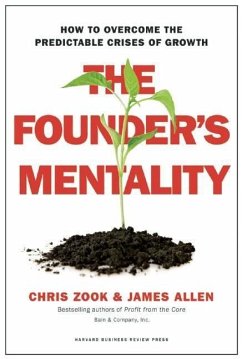
Developing a Successful Subsidiary Strategy
A Step-by-Step Toolkit for Managers
Versandkostenfrei!
Versandfertig in 6-10 Tagen
154,99 €
inkl. MwSt.
Weitere Ausgaben:

PAYBACK Punkte
77 °P sammeln!
Most books on business strategy approach the subject from a corporate perspective, covering topics such as the vision for the business, the marketplace, competition and differentiation. However, the reality is that most managers work in sub-units or subsidiaries of the business and they are not involved in corporate strategy formulation. Their strategic concerns are with the positioning and future trajectory of their own units within the complex internal ecosystem in which they exist. If these units are to survive and grow, the middle managers responsible for them must plan their future, maxim...
Most books on business strategy approach the subject from a corporate perspective, covering topics such as the vision for the business, the marketplace, competition and differentiation. However, the reality is that most managers work in sub-units or subsidiaries of the business and they are not involved in corporate strategy formulation. Their strategic concerns are with the positioning and future trajectory of their own units within the complex internal ecosystem in which they exist. If these units are to survive and grow, the middle managers responsible for them must plan their future, maximise their value-add and compete for resources within the internal market of their corporations. Such internal markets are becoming increasingly volatile due to general economic conditions but also given the questioning of globalisation and increasing corporate concerns about the frailties of international supply chains as brought into sharp focus by the COVID-19 crisis and the war in Ukraine.
This book provides practical perspectives for these business unit managers and a step-by-step toolkit that can be used by management teams to develop a successful subsidiary strategy that acknowledges these challenges while maximising their contribution to corporate objectives. It is based on the author's 30 years of experience as an executive in a complex multinational (IBM) organisation, supplemented by academic study at Master's and PhD levels. The material covered has been verified through workshops over a 3-year period with the senior leadership teams of over 30 multinational subsidiaries operating from Ireland.
This book provides practical perspectives for these business unit managers and a step-by-step toolkit that can be used by management teams to develop a successful subsidiary strategy that acknowledges these challenges while maximising their contribution to corporate objectives. It is based on the author's 30 years of experience as an executive in a complex multinational (IBM) organisation, supplemented by academic study at Master's and PhD levels. The material covered has been verified through workshops over a 3-year period with the senior leadership teams of over 30 multinational subsidiaries operating from Ireland.













